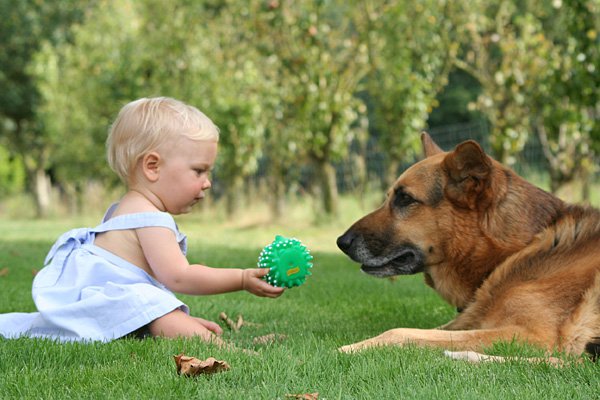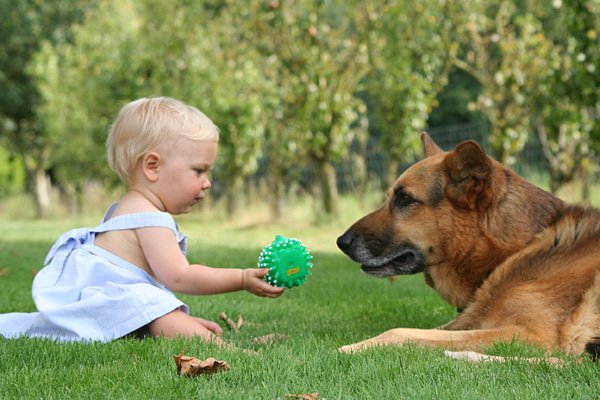

Dogs boast incredible senses which includes an acute ability to hear things a long way off. They are also very gifted when it comes to adapting to things when they lose one of them which means it can be that much harder for owners to know when their beloved pet starts to lose their hearing.
Dogs born deaf never know the sensation of hearing any sort of noise and therefore don’t miss the fact they cannot hear. Congenital deafness is common to quite a few breeds one of which is the Dalmatian. A good, reputable breeder would be able to recognise the fact one of their puppies is deaf long before it leaves the nest, so to speak and if anyone shows an interest in offering a deaf puppy a home, the breeder would be more than happy to offer all the information needed to care for them. It's worth noting that a healthy, normal puppy would respond to sounds at around 10 days old whereas a deaf puppy would not.
Where acquired deafness is concerned, the signs of there being something wrong with a dog’s hearing can be so subtle it goes unnoticed for quite a while until a dog is completely and utterly deaf. However, on occasion dogs might just not appear to be “themselves” which again doesn't necessarily mean you would associate their odd behaviour with the fact they are going deaf.
As previously mentioned it can be quite difficult to recognise the fact your pet might be going deaf although it's easier in dogs than it is in cats. With this said, the signs to keep an eye out for include the following:
Certain breeds are more predisposed to suffer from congenital deafness and this includes dogs that have any dappling or spotting as well as merle and white hair in their coats. According to studies, over 50 breeds are known to be prone to congenital deafness and as previously mentioned, the Dalmatian is one breed that's more commonly afflicted with the condition.
Other of the more popular breeds that are known to suffer from deafness includes the following:
The list above is just a few of the breeds known to suffer from congenital deafness, but if you are at all concerned about your pet, you should discuss your worries with a vet who would be able to carry out certain tests before offering advice on how to deal with their condition.
In most cases there may not be much a vet would be able to do to improve your pet's hearing, but they would be able to offer the right sort of advice on how to make your dog's life easier. It's important to avoid startling your four-legged friend and if there are kids in the house, to explain clearly to them what is happening to their furry friend. Children need to know how to approach a dog if they are going deaf, but they also need to know that calling out their pet's name will not get the same response as it used to do and that they are a lot more patient with their pet.
Sometimes the onset of deafness in dogs is a slow process and the subtle signs things might not be quite right go unnoticed. Some breeds are more prone to ear problems and deafness than others, but with this said most dogs as they get older tend to lose their hearing to some degree. Dogs have an amazing ability to adapt to things when they lose any of their senses and this includes their hearing which makes it even harder for owners to notice something is wrong. However, there are signs to watch out which could be a sign your pet's hearing is not as it once was and this includes when they are easily startled or seem to ignore you when you call them. If you have any concerns, you should discuss your worries with the vet who would be able to examine your pet and tell you if anything is, indeed, wrong with their hearing.
 Can Canine Flea Treatments Lose Their Effectiveness Over Time?
Can Canine Flea T
Can Canine Flea Treatments Lose Their Effectiveness Over Time?
Can Canine Flea T
 4 Common Pet Problems and How to Treat Them
4 Common Pet Problems and How to Treat Them
Ju
4 Common Pet Problems and How to Treat Them
4 Common Pet Problems and How to Treat Them
Ju
 Is There Such A Thing As An Odourless Dog?
Is There Such A T
Is There Such A Thing As An Odourless Dog?
Is There Such A T
 Introducing Your New Puppy To Your Resident Dog
Introducing Your
Introducing Your New Puppy To Your Resident Dog
Introducing Your
 Dog Separation Anxiety and How to Deal with It
Dog Separation Anxiety and How to Deal with It
Dog Separation Anxiety and How to Deal with It
Dog Separation Anxiety and How to Deal with It
Copyright © 2005-2016 Pet Information All Rights Reserved
Contact us: www162date@outlook.com